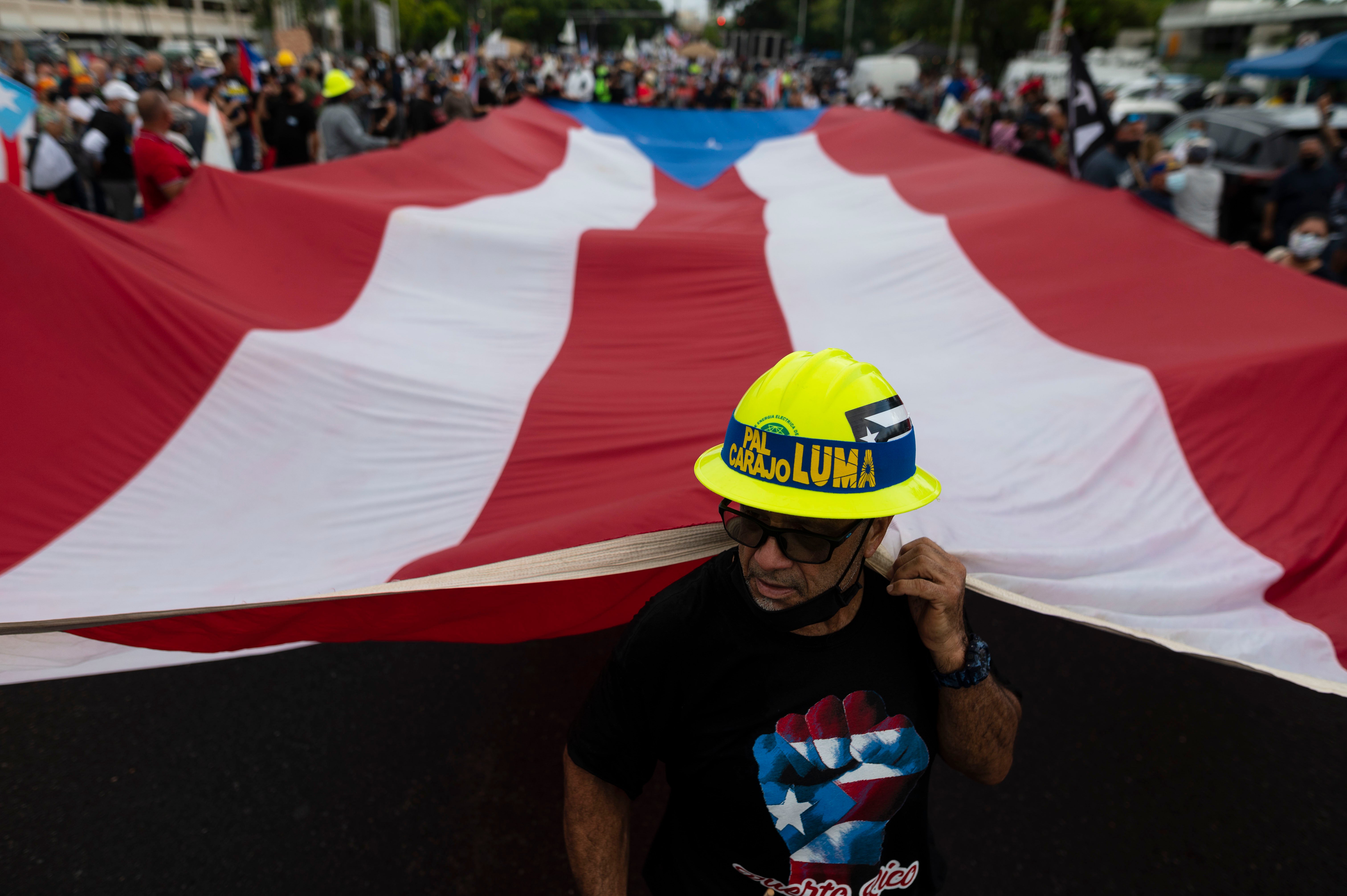Thousands march in Puerto Rico, outraged over power outages
More than 4,000 people outraged over ongoing power outages in the U.S. territory of Puerto Rico are marching to decry how the lack of electricity has affected their health, work and children’s schooling

Your support helps us to tell the story
From reproductive rights to climate change to Big Tech, The Independent is on the ground when the story is developing. Whether it's investigating the financials of Elon Musk's pro-Trump PAC or producing our latest documentary, 'The A Word', which shines a light on the American women fighting for reproductive rights, we know how important it is to parse out the facts from the messaging.
At such a critical moment in US history, we need reporters on the ground. Your donation allows us to keep sending journalists to speak to both sides of the story.
The Independent is trusted by Americans across the entire political spectrum. And unlike many other quality news outlets, we choose not to lock Americans out of our reporting and analysis with paywalls. We believe quality journalism should be available to everyone, paid for by those who can afford it.
Your support makes all the difference.More than 4,000 people outraged over ongoing power outages in the U.S. territory of Puerto Rico marched Friday to decry how the lack of electricity has affected their health, work and children’s schooling.
Many of them demanded the ouster of Luma, a private company that took over the island’s transmission and distribution of power on June 1. Some also are angry at Puerto Rico’s Electric Power Authority, which owns and operates generation units that have been breaking down in recent weeks largely due to a lack of maintenance and repair.
“We’re tired of coming home and discovering that we have no lights,” said Mayra Rivera, 55, adding she is especially worried about her parents, who are in their 90s, and the sweltering heat they face at home.
Thousands marched down a main highway in the capital of San Juan as the sun set, blocking traffic. Once dark, they held their cellphones aloft, turning the highway into a sea of tiny lights. The highway was last shut down during large protests in 2019 that led to the resignation of the governor.
Some wore T-shirts that read, “Go to hell, Luma" as they clapped or banged on pots while walking behind huge speakers on pickups that blasted slogans such as, “My power went out, damn it, and now my fridge will be ruined.”
Among those marching was Juan Antonio Rivera, 78, who said the most recent outage left him in the dark this week for 43 hours. Previous ones damaged his two computers.
“And one of them cost $200 to fix!” he exclaimed. “I have the receipts at home to send to Luma.”
Power outages have occurred more frequently and lasted longer in recent months, with people complaining that they cannot give themselves respiratory therapies or have had to throw away insulin or food. Many also have complained that they can't work or their children are unable to attend online classes, and that expensive appliances have been damaged.
Cicma Albino, a 56-year-old teacher from Guayama who drove more than an hour to participate in the demonstration, said outages affected her school for three days.
“We had to send them home,” she said of the students.
Outages have not only occurred after generation units break down, but also because of selective blackouts announced by Luma that last several hours after officials warn that demand is exceeding supply.
One demonstrator who worked as a linesman for the Electric Power Authority donned his work clothes complete with helmet and tool belt, saying he was frustrated and angry over the outages since his mother is bedridden.
“She will suffer,” he said of the outages.
Puerto Rico’s power grid has grown increasingly unstable after Hurricane Maria pummeled the island in September 2017 as a powerful Category 4 storm. Efforts to strengthen the grid have yet to start, with the government announcing on Thursday the first disbursement of federal funds to the Electric Power Authority, with $7.1 million slated for reconstruction work. The money is part of an overall $9.5 billion obligated by the U.S. Federal Emergency Management Agency to rebuild the grid.
The authority’s new director, Josué Colón, said officials have identified various projects totaling $2.4 billion. He also noted that the generation units are in “critical condition.”
The march comes on the same day that Luma announced it provided electricity for the first time to a community in the neighboring island of Culebra that had depended exclusively on generators or battery-operated solar panels. The company on Friday also was authorized to launch eight transmission and distribution reconstruction projects worth $117 million.